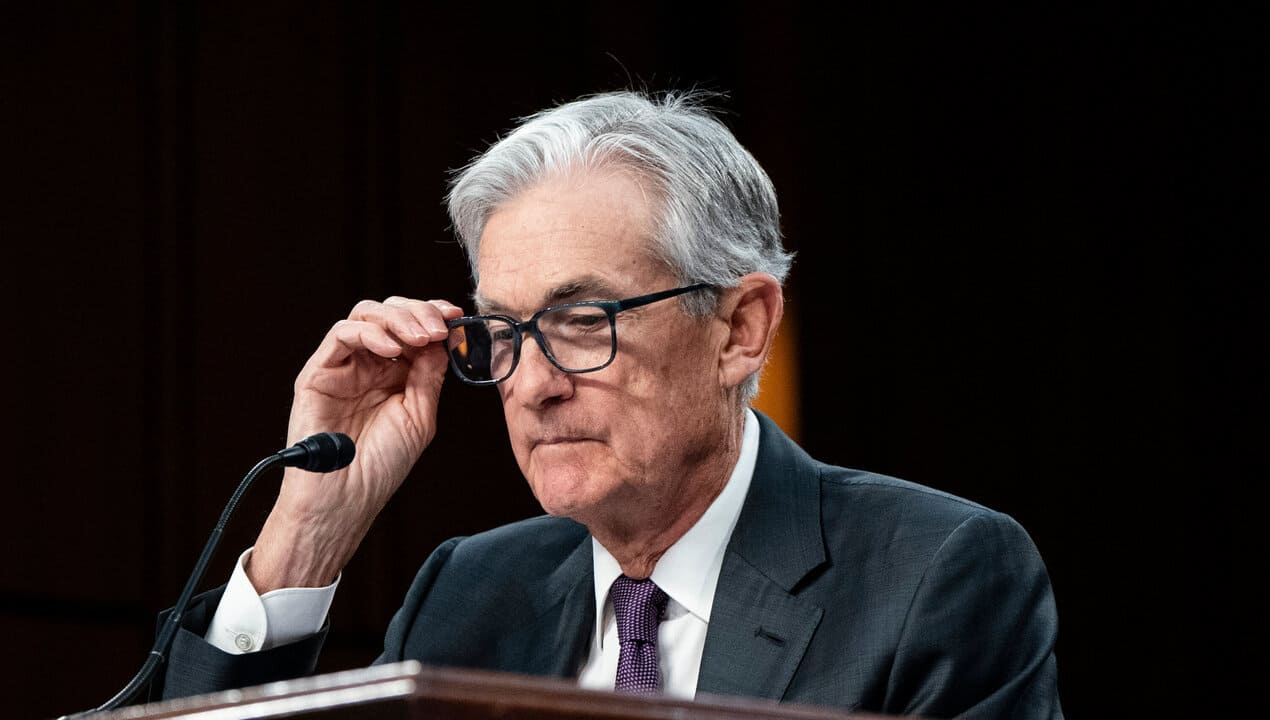
Independent Report – Former U.S. President Donald Trump publicly criticized Federal Reserve Chair Jerome Powell once again. This time urging the Federal Reserve Board of Governors to take direct control of monetary policy if Powell continues to resist lowering interest rates.
In a post made on his Truth Social platform, Trump called Jerome Powell a “stubborn moron” and demanded immediate action to cut rates. He wrote, “Jerome ‘Too Late’ Powell, a stubborn MORON, must substantially lower interest rates, NOW. IF HE CONTINUES TO REFUSE, THE BOARD SHOULD ASSUME CONTROL. AND DO WHAT EVERYONE KNOWS HAS TO BE DONE!” His message reflected growing frustration with the Fed’s decision to maintain current interest rates.
Trump’s remarks followed the Federal Reserve’s latest policy announcement on Wednesday. Which the central bank opted to hold interest rates steady. The decision was met with mixed reactions. Especially after Powell’s comments seemed to indicate that a rate cut in September was far from certain. Markets had been hoping for clearer signs of upcoming monetary easing, but Powell emphasized caution, citing persistent inflationary pressures.
Also Read : Sha’Carri Richardson Arrested Before U.S. Championships
The Federal Open Market Committee (FOMC), which is responsible for setting interest rates. Voted 9-2 to keep the benchmark rate unchanged. This was a significant moment, as two Federal Reserve governors dissented. Marking the first time in over three decades that such opposition has been recorded in the Fed’s typically consensus-driven environment.
In a follow-up post, Trump seized on the dissent to strengthen his argument. “STRONG DISSENTS ON FED BOARD. IT WILL ONLY GET STRONGER! ‘TOO LATE!’” he wrote, again using capital letters to emphasize his message. Trump has frequently used Powell as a target for criticism. Especially when the central bank’s actions appear misaligned with his preferred economic strategy.
The Federal Reserve Board of Governors is composed of seven members. All of whom are nominated by the U.S. president and confirmed by the Senate. While the chair has considerable influence, decision-making within the board is supposed to be collaborative and independent of political pressure. However, Trump’s statement raised questions about the boundaries of presidential influence over the Fed.
Throughout his presidency and beyond, Trump has consistently advocated for lower interest rates. Arguing that they would stimulate economic growth and support U.S. competitiveness. He has accused Powell of moving too slowly. Especially during times when the economy showed signs of weakening or when inflation data came in below expectations.
Powell, on the other hand, has maintained the Fed’s independence and underscored the importance of relying on data to guide decisions. While the Fed is tasked with supporting maximum employment and stable prices, it must also guard against political interference that could undermine its credibility.
The latest rate decision suggests the central bank is proceeding cautiously amid signs that inflation, while moderating, remains above the Fed’s target. Powell reiterated the importance of staying the course and not lowering rates prematurely, which could risk a resurgence of inflation.
Trump’s demand for immediate rate cuts comes amid a broader political backdrop, with the U.S. economy playing a central role in upcoming election debates. Any hint of economic slowdown could become a key talking point, and Trump appears to be using monetary policy as a platform to project strong leadership on economic issues.
While it is highly unlikely that the Fed Board would override Powell based on political statements alone, the unusually public pressure highlights the challenges faced by central banks in maintaining independence during polarized political times.
As the situation evolves, both investors and policymakers will be watching closely for signs of a shift in Fed policy direction—or further escalation in Trump’s ongoing campaign against Powell and the central bank’s decisions.
Also Read : Extreme Heat Hits Japan: Hottest July Since 1898 and More to Come in August